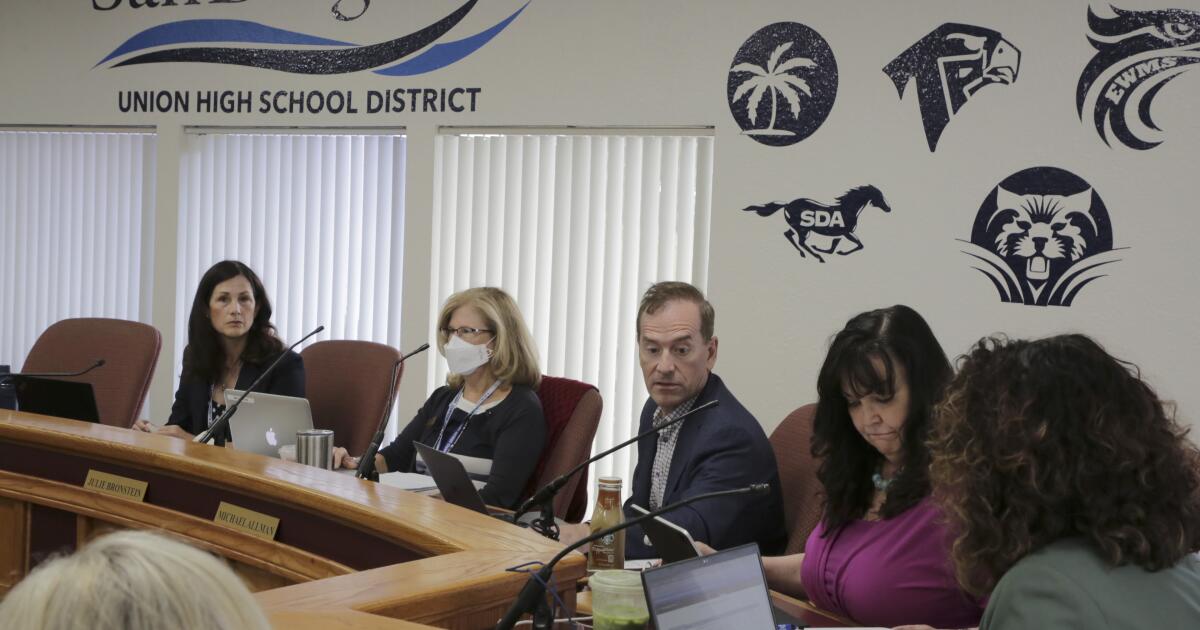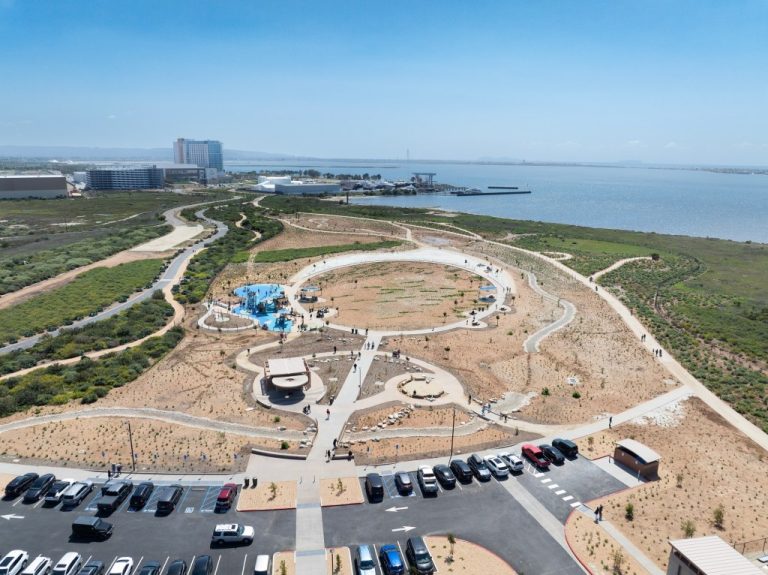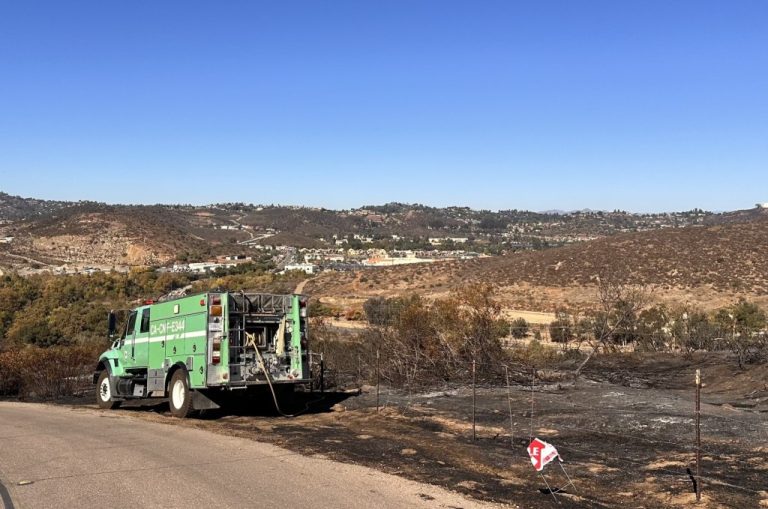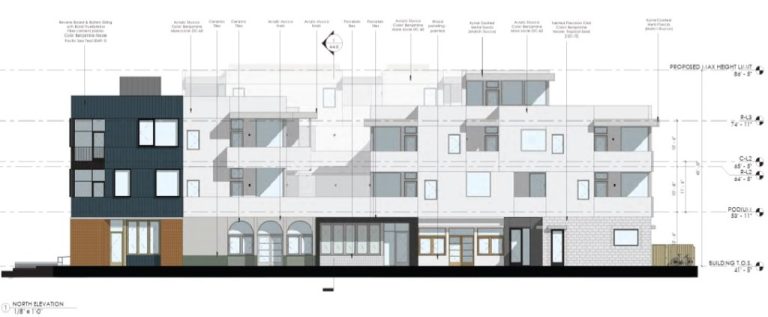
Sutton is a local education writer and opinion columnist and lives in Carlsbad. She can be reached at suttonmarsha@gmail.com.
It’s hard to believe that 25 years ago when I started my career in education journalism, I was often the only person attending school board meetings. I used to think how boring they were. But now I would wish for those boring years back.
Today’s decline in civility in public discourse is perhaps nowhere better reflected than at school board meetings, where the level of rancor has become almost legendary.
Because the education of our youth touches all of us, whether we have children in schools or not, school districts are at ground zero. Everyone is a stakeholder when there are disagreements over the allocation of taxpayer money, academic proficiency, school safety, employee relations, instructional quality and other public school issues.
Occasional skirmishes at board of education meetings have always happened. But now, raucous meetings have become disturbingly commonplace and elected trustees, who reside in our local communities, have become accessible targets for angry constituents.
The San Dieguito Union High School District is a good example of how once uneventful school board meetings can become a forum for heated public confrontations.
SDUHSD, located in the affluent North County coastal region, educates about 13,000 students in grades seven to 12 and is one of the highest performing districts in the county and the state.
An escalation of acrimony in the past decade at San Dieguito has had a crippling effect on both the district’s reputation and its ability to efficiently and without drama conduct its business meetings.
After years of being under the radar, the district made headlines in 2015 when its board narrowly approved a 12.5 percent salary increase for teachers, and later for top management under what’s become known as the me-too clause.
That labor contract, labeled by the San Diego County Taxpayers Association in 2016 as a finalist for the worst use of public funds in the notorious Golden Fleece awards, was perhaps the start of a bitter approach in public comments from both supporters and opponents of the deal.
Other issues brought constituents and district employees to subsequent board meetings, filling nearly every seat in the boardroom, with public criticism of sitting board members often exceeding the bounds of civility.
The negative criticism was not confined to the boardroom however. Board members frequently complained of receiving hostile personal correspondence.
Not helping was a steady turnover of nine leaders in the past 20 years, including two interim superintendents, that resulted in inconsistent and unstable leadership. As the district wobbled from priority to priority, discourse became increasingly toxic.
The election in 2020 of three conservative trustees to the five-member SDUHSD board — the first time in recent memory that the majority of board members were not supported by the union — was a turning point.
The nature of public, and private, criticism against the three became so fierce and personal that one trustee who was considered a swing vote resigned in despair after being publicly mocked by audience members at board meetings.
COVID-19 was a watershed moment for all school districts suddenly faced with the triple whammy of school closures, mask mandates and vaccine regulations.
Confusing government regulations severely eroded public confidence and energized a previously silent segment of the population to become involved in education.
Organized parent associations sprung up to engage and empower parents to advocate on behalf of students who many believed were being harmed — socially, emotionally and academically — by school shutdowns.
As more people, not just parents, began to pay closer attention to their local schools, other controversies emerged over programs addressing social and emotional learning, diversity, race and ethnicity.
Public speech at school board meetings transformed from a focus on reopening schools to comments revealing ideological, political and social divisions.
Neighboring Carlsbad Unified School District held volatile board meetings in the post-COVID years over its diversity and ethnic studies programs. Board meetings about flying the LGBTQ+ Pride flag were tumultuous, and some speakers charged the district with “cultural indoctrination.”
Unraveling problems and achieving a sense of harmony after animosity has become so much a part of a school district’s culture can be difficult.
Yet, ironically, San Dieguito, where coarsening public dialogue has been so toxic for so long, may offer an example of how to address disparate viewpoints respectfully.
By approving a three-year contract in October with San Diego’s National Conflict Resolution Center, San Dieguito hopes to create an environment that fosters understanding and respect for varied perspectives — to allow the district to focus on how best to educate its students rather than reactively putting out fires.
So, although San Dieguito may once have been a representative case for how devolving decorum can wreak havoc on a public institution, perhaps the district can now lead the way toward reversing the deterioration of public discourse and bringing civility back.
And then school board meetings might become boring again.




